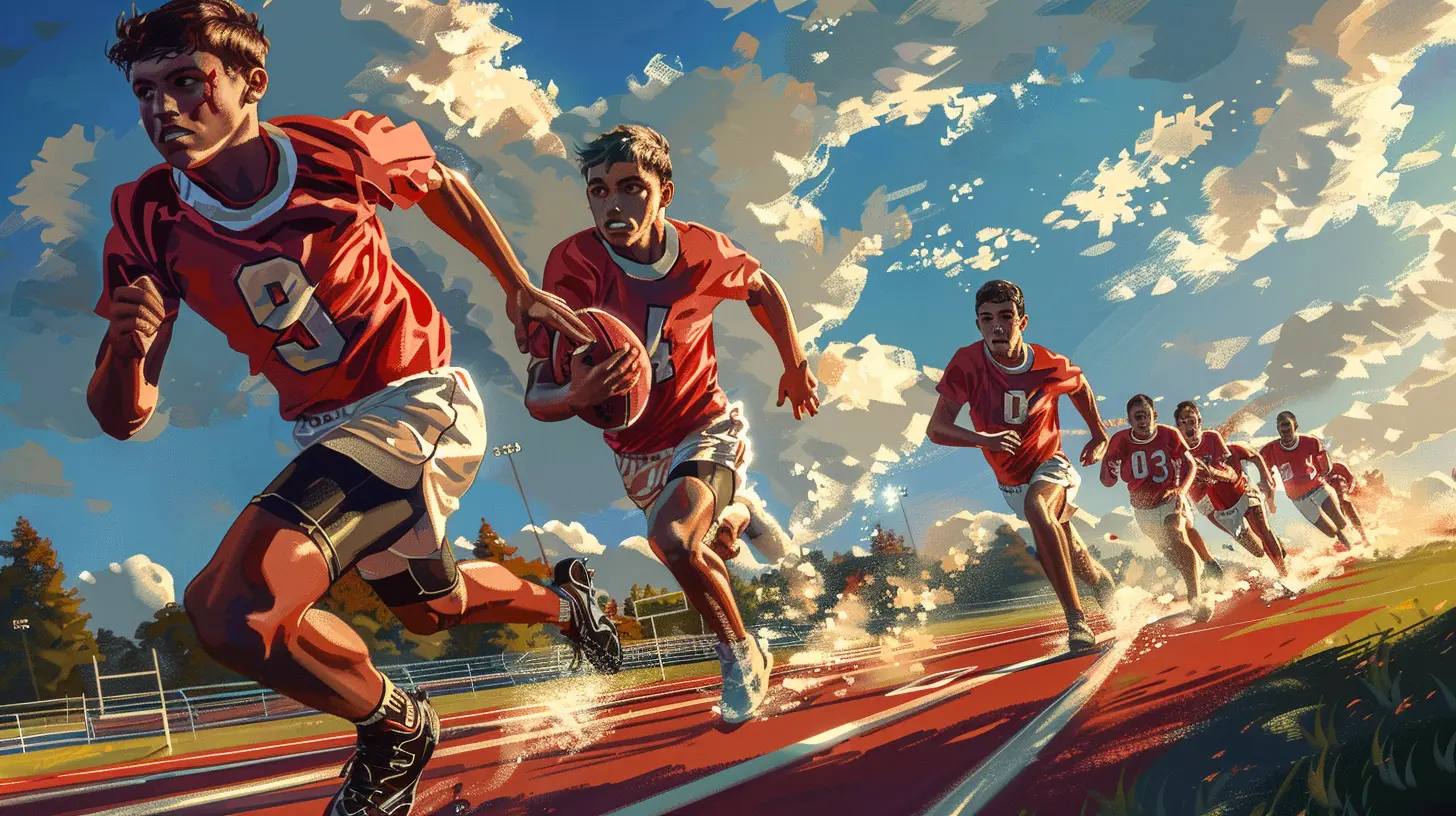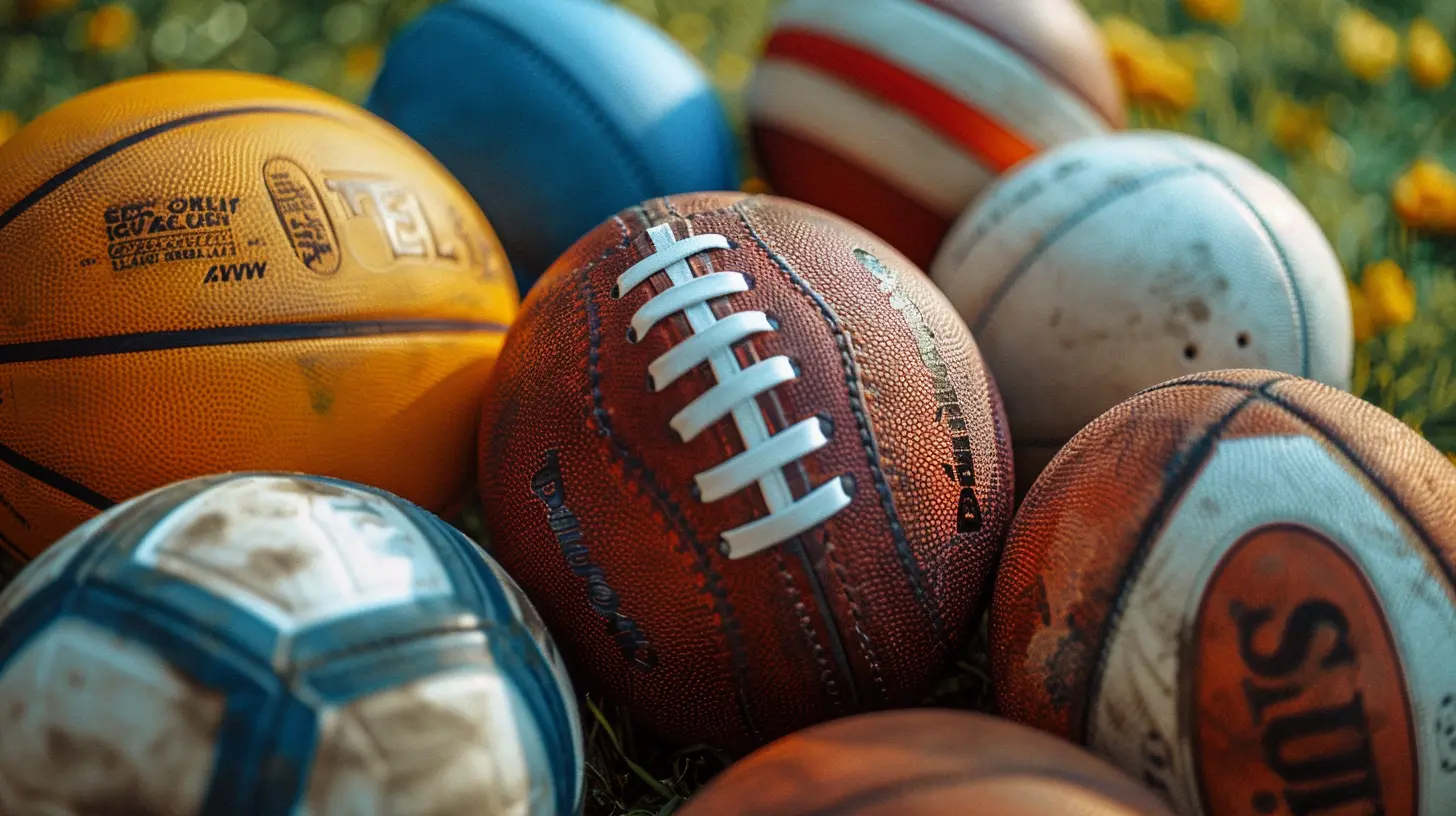How to Balance Academics and Athletics: A High School Athlete’s Guide
2 June 2025
Being a high school athlete is no small feat. You’re not just juggling practices, games, and tournaments – you’ve also got to deal with homework, projects, and exams. It’s like walking a tightrope, where one wrong step can send everything crashing down. But don’t sweat it! With the right strategies, you can strike a perfect balance between academics and athletics. Ready to learn how? Let’s dive in.

The Reality of Being a Student-Athlete
Balancing school and sports isn’t just hard – it’s exhausting. You’re expected to perform at your best in both arenas, and sometimes it feels like there aren’t enough hours in the day.One minute you’re hitting the books, the next you’re sweating it out on the field, and before you know it, it’s midnight and you’re scrambling to finish that essay. Sound familiar? You’re not alone. Many high school athletes feel this pressure. The good news is, with some planning and smart strategies, you can excel in both areas without losing your mind.

Why Balance Matters
You might be wondering, “Why should I even bother balancing academics and sports? Can’t I just focus on one?” Well, the truth is, both are important for your future.Athletics teach you valuable life skills – teamwork, discipline, perseverance – but academics are what will open doors for you later in life. Even if you're dreaming of becoming a star athlete, having a solid academic foundation gives you something to fall back on. Plus, many colleges look at your academic performance when considering athletic scholarships. So yeah, balance is crucial.

Time Management: Your Best Friend
Time management is the secret sauce to balancing academics and athletics. Without it, you’ll constantly feel like you’re drowning in a sea of deadlines and commitments. But with it? You’ll be a productivity powerhouse. Here’s how you can make time management work for you:1. Use a Planner or Calendar
You’ve got a lot on your plate, so don’t try to keep everything in your head. Write it down! Whether it’s a physical planner or a digital calendar, keeping track of your school assignments, practice times, and game schedules will help you stay organized.When you see your week laid out in front of you, it’s easier to figure out when you’ve got free time for homework or study sessions.
2. Prioritize Your Tasks
Not all tasks are created equal. Some things are super important (like that math test tomorrow), while others can wait (like watching that Netflix show everyone’s talking about). Make a habit of prioritizing your most important tasks first.Ask yourself: What’s due soon? What’s worth a big chunk of my grade? What’s going to take the longest? Once you know the answers, tackle those tasks head-on.
3. Break it Down
Big projects or assignments can feel overwhelming when you’ve got a busy athletic schedule. But here’s the trick: break them down into smaller, more manageable tasks. Instead of writing that 10-page paper in one night, do a little bit each day. It’s like training for a race – you don’t sprint the whole way, you pace yourself.
Communication is Key
As a student-athlete, you’ve got two major teams: your sports team and your academic team (aka your teachers). And just like in sports, communication is key.1. Talk to Your Coaches
Most coaches understand the demands of being a student-athlete. If you’ve got a big test coming up or an important assignment, let your coach know. They might be willing to adjust your practice schedule or give you some slack. But they can’t help you if you don’t communicate with them.2. Build Relationships with Your Teachers
Teachers appreciate when students make an effort. If you’re struggling to keep up with your schoolwork, don’t wait until you’re drowning to ask for help. Talk to your teachers early on. Let them know about your athletic commitments and ask for advice on how to stay on top of your assignments. Most teachers will respect your dedication and may even offer extensions or extra support if needed.Make the Most of Your Time
Let’s face it: you don’t have a ton of free time as a student-athlete. That’s why it’s important to make the most of the time you do have.1. Use Travel Time Wisely
Got a long bus ride to an away game? Don’t just scroll through social media or take a nap (though naps are great). Use that time to knock out some reading or review your notes. It might not feel like much, but those small pockets of time can add up.2. Study During Lunch or Breaks
Lunch isn’t just for eating – it’s also a perfect opportunity to get some studying done. If you’ve got a test coming up, use your lunch break to review flashcards or go over notes. It’s all about squeezing in study time whenever you can.3. Avoid Procrastination
We’ve all been there – putting off studying or doing homework because we’d rather be doing something else. But as a student-athlete, you don’t have the luxury of procrastinating. The more you put things off, the more they pile up, and before you know it, you’re buried in work. So, get into the habit of tackling tasks as soon as they come up.
Stay Healthy – Physically and Mentally
Balancing academics and athletics can be stressful, and if you’re not careful, it can take a toll on your physical and mental health. Here’s how to keep yourself in top shape:1. Get Enough Sleep
It’s tempting to stay up late cramming for a test or finishing a paper, but sleep is just as important as study time. In fact, sleep helps you retain information, so you’ll perform better on that test if you’re well-rested. Aim for at least 7-8 hours of sleep each night.2. Eat Right
Your body is a machine, and it needs the right fuel to perform at its best. Make sure you’re eating a balanced diet with plenty of fruits, vegetables, lean protein, and whole grains. Stay hydrated, too – water is your best friend.3. Take Time for Yourself
Between school and sports, it’s easy to forget about self-care. But taking time to relax and recharge is crucial for your mental health. Whether it’s listening to music, hanging out with friends, or watching your favorite show, make sure you’re carving out time for the things you enjoy.4. Manage Stress
Stress is inevitable, but how you handle it makes all the difference. Find healthy ways to manage your stress, whether it’s through exercise, meditation, or talking to a friend. If you’re feeling overwhelmed, don’t hesitate to reach out to a counselor or trusted adult for support.Learn to Say No
Sometimes, you just have to say no. It’s not easy, especially when you feel the pressure to be everywhere at once, but it’s necessary. If you’re already swamped with school and sports, it’s okay to turn down that extra club or social event. You’re only human, and you can’t do it all.1. Set Boundaries
Learning to set boundaries is a life skill that will serve you well beyond high school. It’s about knowing your limits and not overcommitting yourself. You don’t have to be part of every team, every club, or every social event. Focus on what’s most important to you and what aligns with your goals.2. Don’t Feel Guilty
Saying no doesn’t make you a bad person. It makes you smart. You’re prioritizing your well-being and your future, and that’s something to be proud of. So, next time you’re asked to take on something extra, think about whether you’ve got the time and energy for it. If the answer is no, don’t feel guilty for saying it.
Plan for the Future
High school won’t last forever. At some point, you’ll need to start thinking about what comes next – whether it’s college, a sports career, or something entirely different. Balancing academics and athletics now will set you up for success in the future.1. Set Long-Term Goals
Where do you see yourself in the next five years? Do you want to play sports in college? Do you have a career path in mind? Start thinking about your long-term goals and how your academic and athletic achievements can help you reach them.2. Keep Your Options Open
Even if you’re set on becoming a professional athlete, it’s always good to have a backup plan. Academic success will give you more options, whether that’s going to college, pursuing a different career, or even getting into coaching. The more doors you leave open, the better off you’ll be.Balancing academics and athletics isn’t easy, but with the right mindset, time management, and support system, it’s totally doable. Remember, you don’t have to be perfect – it’s all about finding what works best for you. Keep your priorities in check, stay organized, and don’t forget to take care of yourself along the way. You’ve got this!
all images in this post were generated using AI tools
Category:
High School SportsAuthor:

Frankie Bailey
Discussion
rate this article
3 comments
Audra Navarro
Mastering time management is the true MVP in balancing books and sports!
June 22, 2025 at 7:34 PM

Frankie Bailey
Absolutely! Effective time management is key to thriving in both academics and athletics. It allows students to excel in their studies while also dedicating time to their sport.
Julia Gonzalez
Balancing books and bleachers? It’s like juggling water bottles and textbooks! Remember, a solid game plan for academics can score you extra points on the field (and in the classroom). Keep hustling, future MVPs! 🎓🏆
June 10, 2025 at 10:28 AM

Frankie Bailey
Thank you! A strong game plan is essential for success both in sports and academics. Keep pushing forward! 🏅📚
Reina Barrett
This article offers valuable insights for student-athletes. Balancing academics and sports is challenging but essential for success in both areas. Great tips and advice!
June 8, 2025 at 4:08 AM

Frankie Bailey
Thank you! I'm glad you found the tips helpful for navigating the balance between academics and athletics. Best of luck to all student-athletes!



